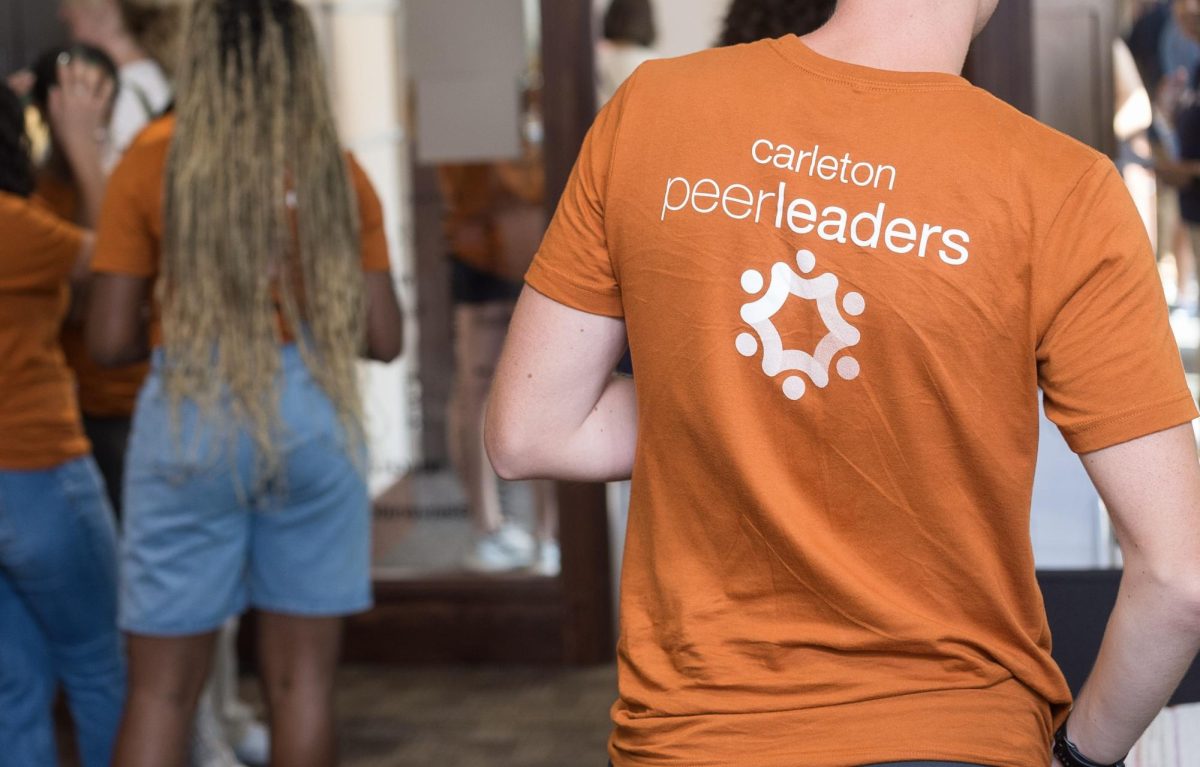Carleton College has proudly announced the establishment of its brand-new Office of On-Campus Studies, or OCS. (The process of naming the new office was delayed when several staff members expressed concern about using a name with the same abbreviation as Off-Campus Studies, but they were soon persuaded that context could be counted on in every case to resolve any potential ambiguity. The OCS Office also urges the campus community not to distinguish the two by referring to them as “old” and “new” OCS offices, since this could imply that the new OCS Office was replacing the old one, which could not be further from the truth.)
The new OCS Office was created partly in response to student disappointment at the cancellation of many off-campus programs due to COVID. And since their goals are similar and their programs complementary, the Offices of On- and Off-Campus Studies will now be collaborating to find safer ways for students to explore. They will form the joint Department of On- and Off-Campus Studies, or OOCS. (The naming of this department apparently presented some difficulty as well. A few staff members were worried that the hyphens in the department name were liable to be placed incorrectly on campus signage, which could generate confusion: written without hyphens, they argued—or worse, as “On-and-Off Campus Studies”—the name could be thought to refer to a seasonal or sporadic study of campus life. But this worry was ultimately set aside.) To aid in their collaboration, members of both offices have joined together to form a committee for the Oversight of On- and Off-Campus Studies (OOOCS).
According to founder Aurora Wilder, On-Campus Studies hopes to “provide a great alternative for students looking for adventure and exploration during a pandemic.” She points out that an overly literal and simplistic interpretation of what it means to explore is “incompatible not only with our current circumstances but with students’ growth as young adults. On-campus programs will help students develop the ability to see familiar surroundings in new ways—a skill that is arguably more valuable than any experience abroad. And since life consists largely of repetition, we should learn to love monotony instead of seeking novelty. OCS can teach you how!”
It is hard to imagine a more compelling case for the new OCS. But I will hazard that Wilder’s argument does not go far enough: the very idea that travel in itself generates “new” experiences is based on the misconception that our experiences come from outside of us, when really they come from within us. Simply studying abroad does not necessarily bring about new experiences; it is all too easy to reestablish our old habits wherever we go—whether into Northfield or across the world—so that we find ourselves thinking the same thoughts and feeling the same feelings, no matter where we look for novelty. Conversely, our entire worldviews can change as we study history or literature, for example, at our own desks and in the classrooms on this campus. And paradoxically, the very experience of “monotony” is evidence that when we find ourselves in the same external circumstances for a long time, our psychological experience of these circumstances does not remain the same at all but changes enormously. Otherwise, we could eat the same food every day and never get tired of it, since it would always taste just as good to us as it had the first time we had eaten it. When we get tired of doing the same thing again and again, it is because our experience of doing that activity is changing and becoming less and less enjoyable, even while the activity itself remains the same. So our boredom with “sameness” actually results from a change within ourselves. And it is the changes within us that give us new experiences, for better or for worse.
In the current circumstances, it is clear that those of us who have chosen to pursue on-campus studies rather than studies abroad have not made this choice with complete freedom. Even the off-campus programs that had planned to send students to AmericInn and Fairfield Inn & Suites next term have been cancelled, so the options are somewhat limited. Nonetheless, I am excited to be living in my own bedroom this spring to participate in Carleton’s new program The Dorm as a Living Space: Creating Little Homes.













